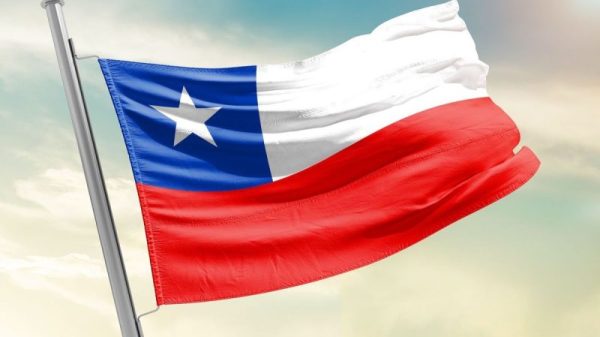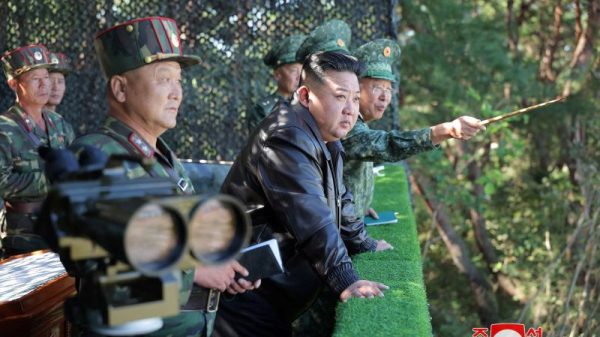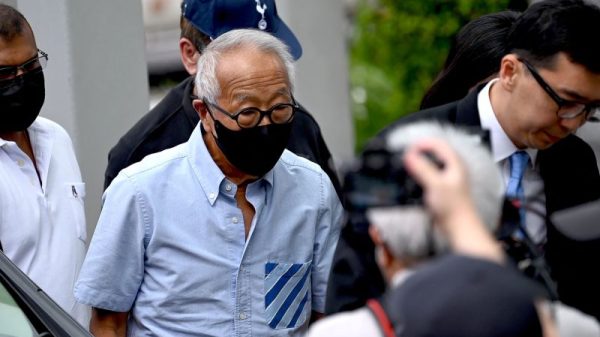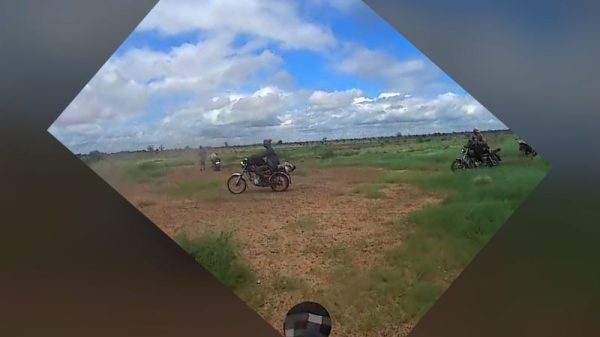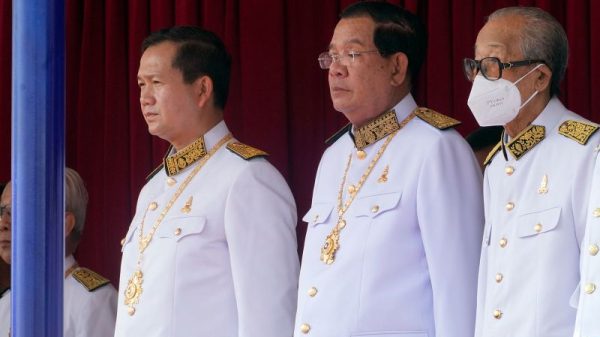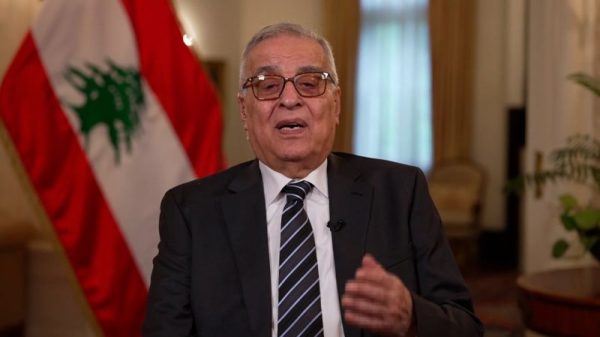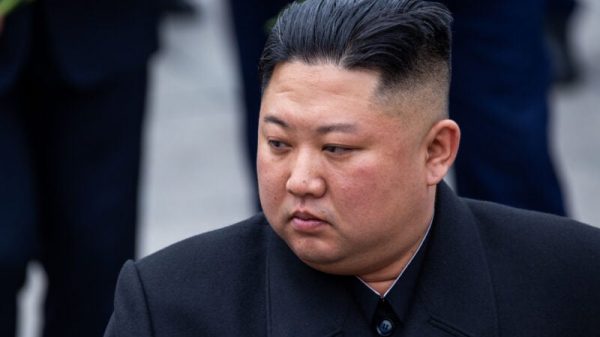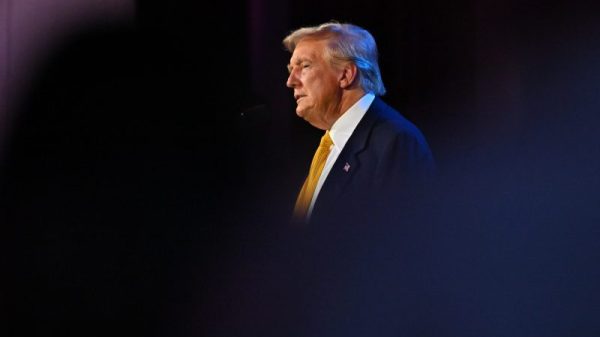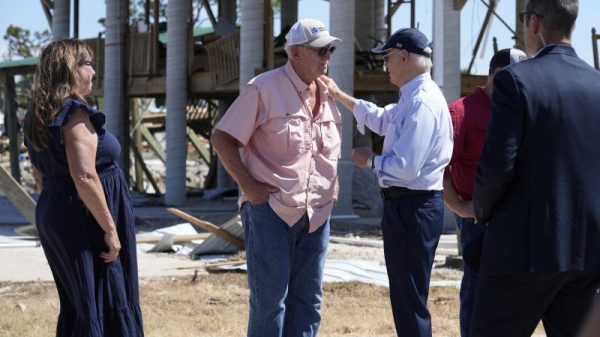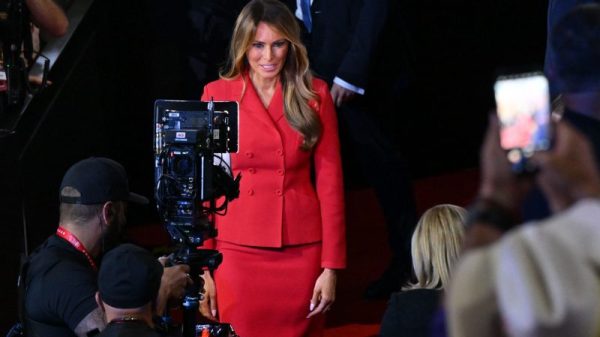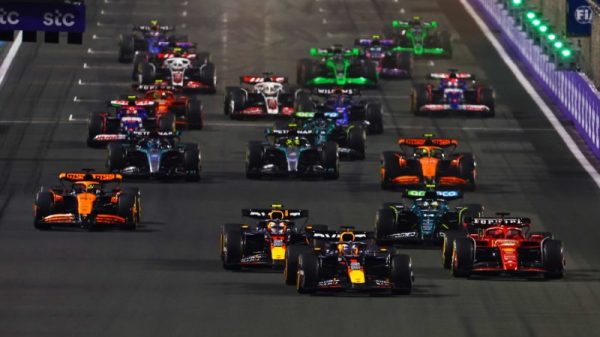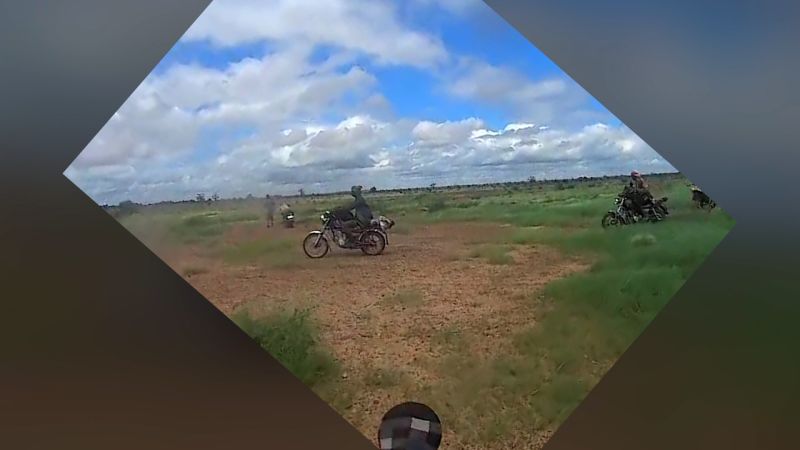Editor’s note: This story contains a graphic image and descriptions of violence.
Up to 600 people were shot dead in a matter of hours by al Qaeda-linked militants in an August attack on a town in Burkina Faso, according to a French government security assessment that nearly doubles the death toll cited in earlier reports. The new figure would make the assault, in which civilians were shot dead as they dug trenches to defend the remote town of Barsalogho, one of the deadliest single attacks in Africa in recent decades.
Militants from Jama’at Nusrat al-Islam wal-Muslimin (JNIM), an al Qaeda affiliate based in Mali and active in Burkina Faso, opened fire methodically as they swept into the outskirts of Barsalogho on motorcycles and shot down villagers, who lay helpless in the freshly upturned dirt of the trench, according to several videos of the August 24 attack posted by pro-JNIM accounts on social media. Many of the dead were women and children, and the footage is punctuated by the sound of automatic gunfire and screams of victims as they are shot while apparently trying to play dead.
The United Nations initially estimated the death toll was at least 200. JNIM said it had killed nearly 300 people but claimed it had targeted militia members affiliated with the army, rather than civilians, according to a translation by Site Intelligence Group cited by Reuters.
“Large-scale deadly attacks (at least a hundred deaths) against civilian populations or defense and security forces have been occurring for several weeks at a rate that seems unsustainable for the government,” the report says of Burkina Faso, “which no longer really has a military strategy to offer and whose propaganda discourse seems out of breath and ideas.”
On September 17, the capital of nearby Mali, Bamako, was rocked by another JNIM assault, which hit the airport, among other key buildings, and killed more than 70 people.
‘Defensive trenches’ became mass grave
The massacre at Barsalogho came as locals were ordered by the military to dig a vast trench network around the town to protect it from jihadists circulating nearby. The JNIM gunmen then attacked the defenses, mid-construction, falsely claiming the civilians were combatants because of their involvement, according to eyewitnesses.
“I started to crawl into the trench to escape,” he said. “But it seemed that the attackers were following the trenches. So, I crawled out and came across the first bloodied victim. There was actually blood everywhere on my way. There was screaming everywhere. I got down on my stomach under a bush, until later in the afternoon, hiding.”
“There were few remaining men afterwards in the town. Seeing the bodies arrive on motorized carts from the massacre site was the most horrible thing I’d ever seen in my life. Neither women nor children had tears to shed. We were more than shocked. How can you cry if there are no tears to shed?”
“We the survivors are no longer normal. The problem is beyond us all. The massacre started in front of me. The very first shots were fired right in front of me. I was one of the people who picked up the bodies and buried them. I see my late friends when I’m asleep,” he said, adding that the initial reports of 300 dead were too low. “Anyone who denies it, should come and see me.”
The assault led to angry protests in which Burkina Faso’s junta leader, captain Ibrahim Traore, who seized power in the second of two successive military coups in 2022, was derided as “IB Captain Zero” for endorsing the construction of the trenches by civilians. The French report said their construction had been part of a plan by the Minister of Civil Service in which each settlement “must organize itself and have its own response plan to an attack.”
Burkina Faso’s 2022 coups came amid frustrations over the authorities’ inability to quash recurring jihadist violence, despite intensive French military assistance, which has claimed thousands of lives for almost a decade. But that violence has worsened under Traore, according to experts and human rights watchdogs.
Though successful at first, by 2014, France’s military operations in the region were met with growing anti-French sentiment. France broadened its counterterrorism presence but was unable to contain the ever-expanding armed groups who threatened civilians. As a result, local populations became wary of the former colonial power.
Traore has made only one public appearance since the massacre, and the assessment – penned in late August – questions his state of mind and fitness for office. “We see there all the powerlessness of the authorities to provide a serious and credible response to the terrorist threat,” the report reads.
Russian mercenaries on back foot as violence spreads
Meanwhile, Russian mercenaries who arrived in Burkina Faso almost a year ago have failed to bring calm to the country and are at least partially being pulled out to help Moscow in its war against Ukraine, the assessment adds. Increased security in the capital Ouagadougou around key buildings may be linked to the withdrawal of much of the 100-strong Wagner mercenary group’s “Bear” unit, charged with Traore’s personal protection, says the report. The mercenary group has been under new management since the death of Wagner founder Yevgeny Prigozhin in a plane crash last year, but Wagner is still colloquially referred to by its old name in the Sahel.
The report suggests the unit was reassigned to fend off Ukraine’s invasion of the Russian border regions and may be replaced with less capable Russian servicemen.
Criticism of the army, voiced by relatives of the dead and survivors from Barsalogho, who maintain the military fled the assault, has been amplified by recent accusations of cannibalism by Burkina Faso soldiers, the report adds. It cites videos posted publicly on social media that appear to show soldiers from the Rapid Intervention Battalion 15 (BIR-15) eating parts of dead jihadists.
The report adds: “The general staff of the Burkina Faso armies published a press release on July 24, 2024, in which it ‘condemns these macabre acts’ and ‘reassures that measures will be taken to formally identify the origin of these images as well as their authors.’” It assesses the incident as another sign of discipline in the army deteriorating since the coup two years ago that put Traore in power and led to the French departure.
The French security assessment adds the violence in Burkina Faso has begun to spill over into at least one of its peaceful southern neighbors, citing an attack inside Togo from a Burkina Faso border town, Kompienga, on July 20, seizing a Togolese army camp, killing at least 12 soldiers and looting weapons. “Rumors indicate the creation of a new GSIM Wilaya for Togo,” the report adds, referring to a new al Qaeda affiliate for the country, “fueled by terrorists from the North.”
“Barsalogho is proof that Burkina Faso is teetering on the edge because the terrorists have such a hold on the country. Six hundred people have died, and that’s terrible, but what’s worse is that it’s as if it never happened, because the killers continue to roam free with no fear of retribution,” according to the assessment.

